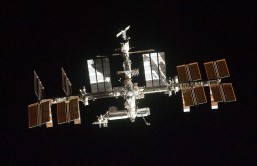Scientists believe they have found a new way to monitor ocean acidification from space, according to a paper that will be published in the Feb. 17 edition of the journal Environmental Science and Technology.
According to researchers from the University of Exeter, Plymouth Marine Laboratory, Institut français de recherche pour l'exploitation de la mer (Ifremer), the European Space Agency and a team of international collaborators, a quarter of the carbon dioxide we release into the atmosphere is absorbed by the ocean. The ocean's pH decreases and the ocean acidifies.
The researchers are developing new ways to monitor the acidification of the Earth's oceans from space.
"Satellites are likely to become increasingly important for the monitoring of ocean acidification, especially in remote and often dangerous waters like the Arctic," said lead researcher Jamie Shutler, according to Science X Network. "It can be both difficult and expensive to take year-round direct measurements in such inaccessible locations. We are pioneering these techniques so that we can monitor large areas of the Earth's oceans allowing us to quickly and easily identify those areas most at risk from the increasing acidification."
Currently, testing is done on small areas of the ocean from research vessels that are expensive to operate. New thermal cameras mounted on satellites would be able to measure ocean temperature while microwave sensors would measure salinity. Existing satellites could be recruited for the task.
"In recent years, great advances have been made in the global provision of satellite and in situ data," said lead author Peter Land, according to Science X Network. "It is now time to evaluate how to make the most of these new data sources to help us monitor ocean acidification, and to establish where satellite data can make the best contribution."
According to researchers, the project was funded by the European Space Agency Support to Science Element Pathfinders Ocean Acidification project (contract No. 4000110778/14/I-BG) and "the authors declare no competing interest."








